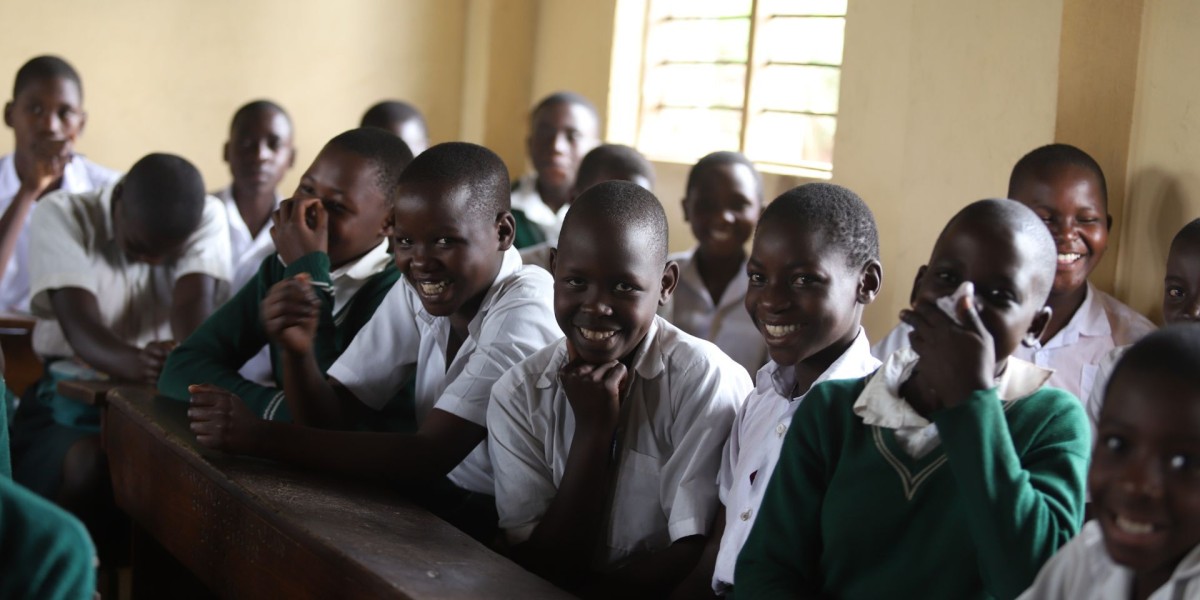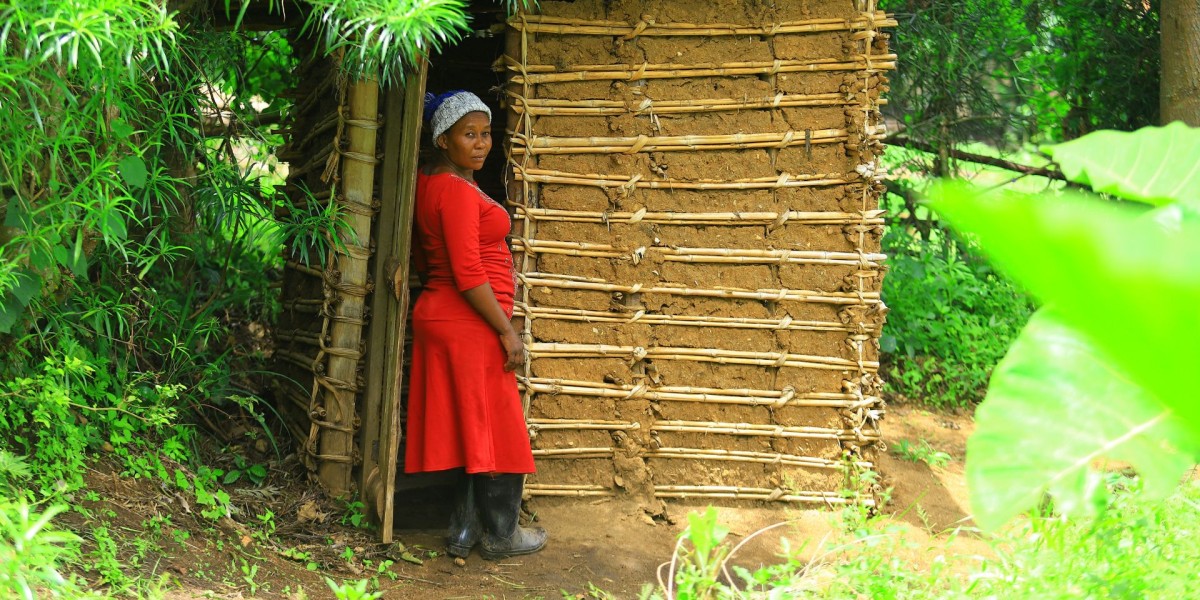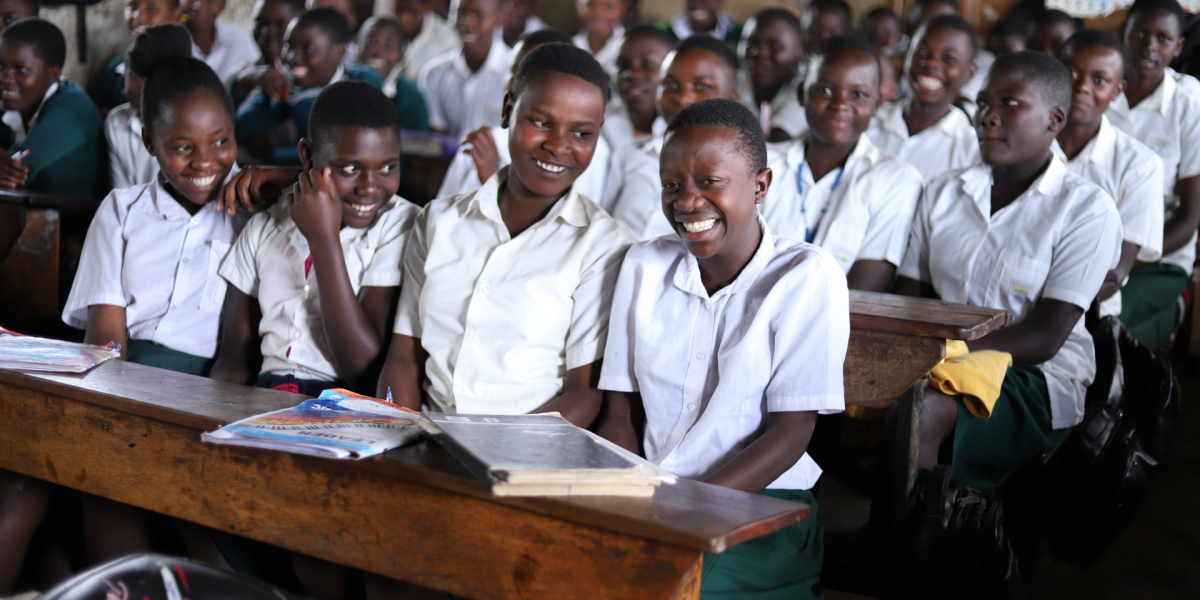A tap and a toilet: the huge impact for girls and mothers in Uganda
Insufficient toilets and no clean water at school. Violet Kasembo (14) and Esther Kobusinge (12) from Uganda share what the consequences are.
They are girls with dreams and ambitions. Violet: ‘I came third in my class last term, and when I grow up, I want to be a nurse!’ Esther is equally ambitious and hopes to become a doctor: ‘I want to provide healthcare to everyone in my village.’
The two attend Kyamatanga Primary School in Uganda. More than half of the schools in this East African country lack adequate toilet and water facilities, which leads to pupils dropping out of school, especially girls. That’s why Simavi is launching a new project focused on water and toilets at 18 schools and the 36 surrounding villages.
For ambitious girls like Violet and Esther, this could make a big difference. Violet: ‘My school has toilets, but nowhere near enough for all the students. During break time, there are long queues.’ Esther adds: ‘Sometimes I’m late for class because I have to wait so long in line.’

Fetching water: hard and scary
As a seventh-grader, Violet is also responsible for fetching water from a well 1.5 kilometres away. This water is used for cleaning toilets and cooking. Violet: ‘Because of this I miss classes, and it’s also hard and a bit scary, especially when the road is slippery because of the rain.’ The well is shared by three villages and two schools, meaning long queues. ‘And it can feel awkward if we run into students from the secondary school.’
The lack of proper toilets makes life difficult for the girls. ‘When I have my period, I stay at home because we share the toilet block with the boys, and there’s not enough privacy,’ Esther says. Violet also sometimes skips school when she has her period.
‘The toilets smell really bad, and I feel embarrassed because my uniform smells when I come out,’ says Esther. Violet feels the same: ‘Sometimes I even feel like taking off my shirt before going back to class because I don’t want to carry that smell with me.’ Esther adds, ‘With enough water, we could keep the toilets cleaner.’

Violet: ‘Fetching water makes me miss classes, and it’s also hard and a bit scary, especially when the road is slippery because of the rain.’
Dirty and muddy water at home
Water is also a problem at home. Violet’s mother, Margret Kemigisa, says there is a water pipe in the village, but it doesn’t always work. ‘Sometimes we go a whole month without water. And even when it flows, it’s very dirty and looks muddy.’ This discourages people from investing in their own water connection.
Margret has a busy life: she runs a small shop in the centre and raises pigs and goats. ‘But I stopped sending Violet to the well in the evening after school. Many boys hang around to bathe, and it doesn’t feel safe for my daughter. But it takes me an hour to fetch 40 litres of water, and sometimes I wait for one or two hours.’
She constantly worries when she sends her daughter to the well early in the morning. ‘I fear she might start something with a boy too young, or worse, that she’ll be sexually harassed.’

Unsafe to go to the toilet
The situation is also unsafe at night. 'We must go outside to use the toilet, and just yesterday, my neighbour was attacked by thieves when she went out to relieve herself. We’re all on high alert now. I’ve started using a bucket at night, and my children are not allowed outside in the dark.'
Esther’s mother, Beatrice Kayezu, also struggles with the lack of facilities. 'We get most of our water from an open well, as the other source is too far away. But the water from this open well is very dirty, especially during the rainy season.'

Esther: ‘When I have my period, I stay at home because we share the toilet block with the boys, and there’s not enough privacy’
Beatrice collects water from the open well with her daughters and son after one of her children accidentally fell in. For drinking water, they go to a protected source in a neighbouring village. 'It saddens me that we must do so much to get clean water. I’d rather spend that time working on the piece of land I rent, where I grow beans and maize.'
She’d also like to improve their toilet. 'In our village, we build toilets out of mud and reeds. I used banana leaves as a roof, but I’d like to improve it.' She constantly worries about her children: 'If they need to go to the toilet at night, I usually get up to accompany them for safety.'

WASH, Learn & Share programme
The aim of Simavi’s WASH, Learn & Share project is to make lasting improvements to the situation at schools and in the villages. A rainwater harvesting tank and toilet blocks will be constructed on the school grounds, but also special WASH clubs will be set up where motivated students like Violet and Esther will learn about water, sanitation, and hygiene and share this knowledge in various ways with their peers.
The communities will also be closely involved, with students and local organisations making sure everyone feels responsible for the project. Local entrepreneurs will collaborate to come up with sustainable solutions for building and maintaining facilities. Together with school headteachers, smart ways will be devised to generate enough funds for maintenance of the water tank and toilets, such as through proceeds from school gardens.
Violet and Esther are ready to join the WASH club at their school. But 12-year-old Esther is also looking forward to something else. 'I love dodgeball. If we have water and toilets at school, I won’t have to stand in line during break time, and I can play with my friends.'


